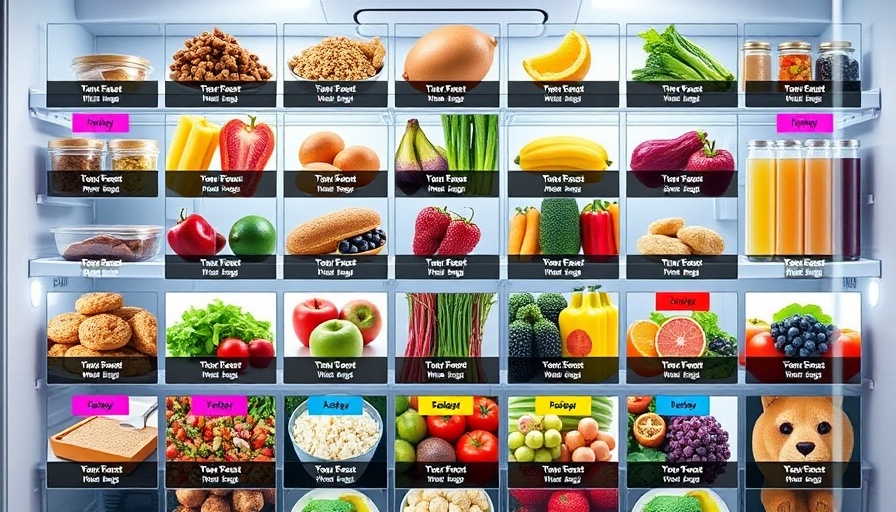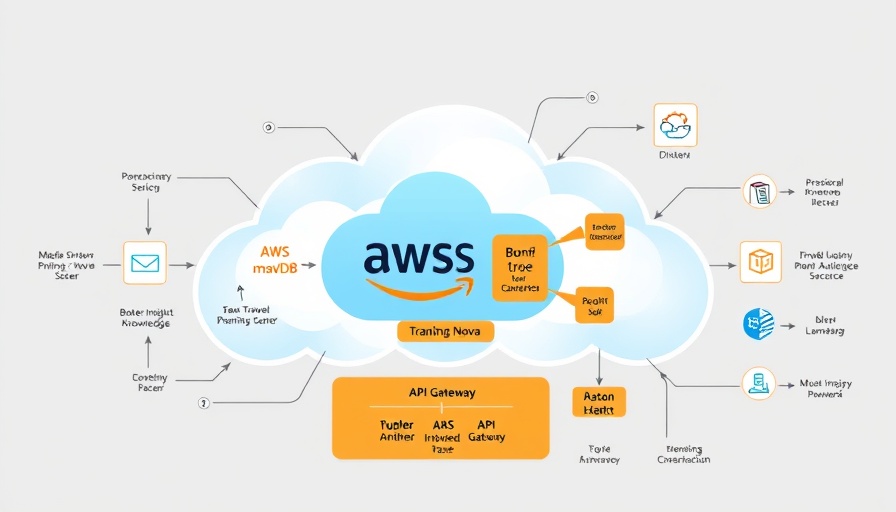
Transforming Food Waste Management with AI Innovations
The advent of artificial intelligence (AI) is reshaping numerous sectors of our economy, and the culinary landscape is no exception. Recent initiatives by tech giants like Amazon and innovative startups such as Hungryroot and Albert Heijn are employing AI not just to enhance cooking experiences but also to tackle the burgeoning issue of food waste. These technological advancements promise not only to elevate meal preparation but also contribute meaningfully to environmental sustainability.
Understanding Food Waste: The Scale of the Problem
Food waste is a colossal issue, particularly in developed countries, where approximately one-third of all produced food goes uneaten. This contributes significantly to greenhouse gas emissions, accounting for 26% of global emissions according to a 2021 study published in Science. By applying AI, businesses aim to mitigate this problem through more efficient food management and personalized consumer experiences.
AI-Powered Culinary Solutions: Amazon Rekognition and Bedrock
Amazon's latest offerings integrate machine learning models like Rekognition and Bedrock to create personalized recipe recommendations. This approach hinges on scanning food items available at home, thus generating meal ideas tailored to existing ingredients. By focusing on actual inventory, it minimizes unnecessary purchases and aligns closely with consumer preferences, fostering a dining experience that not only satisfies culinary desires but also reduces waste.
Hungryroot’s Tailored Approach to Meal Preparation
Similar to Amazon’s approach, Hungryroot leverages AI to provide customized meal kits that ensure users receive only the food they intend to consume. This direct response to consumer needs is designed around personal preferences, dietary restrictions, and even how and when users cook. The result is a tailored delivery that significantly curtails food wastage—reportedly by 80%—compared to traditional grocery models.
Albert Heijn’s Innovative Scan & Cook Feature
Over in the Netherlands, supermarket giant Albert Heijn has unveiled its "Scan & Cook" feature. Using generative AI, customers can photograph items in their pantries or the grocery store and receive tailored recipe suggestions based on those ingredients. This initiative is just one facet of Albert Heijn’s broader commitment to reduce food waste; the company has set ambitious goals to halve its food waste by 2030.
The Broader Implications of AI in Reducing Waste
These innovations highlight a crucial shift in how businesses use technology not only for profit but as a means of environmental stewardship. By embracing AI to align consumer demand with actual food supplies, companies like Amazon, Hungryroot, and Albert Heijn are paving the way for a more sustainable future. Their efforts underscore a growing trend where leveraging data and AI technology can lead to better resource management and significant reductions in waste.
Realizing the Future of Food and Sustainability
As leaders in their respective fields, company CEOs, CMOs, and COOs are presented with an opportunity to champion these technological advancements in their organizations. With the dual goal of enhancing customer satisfaction and promoting sustainability, AI's role in the culinary sector is poised for substantial growth. The intersection of technology and food management is not merely beneficial; it is essential for the future of our planet.
 Add Row
Add Row  Add
Add 




Write A Comment